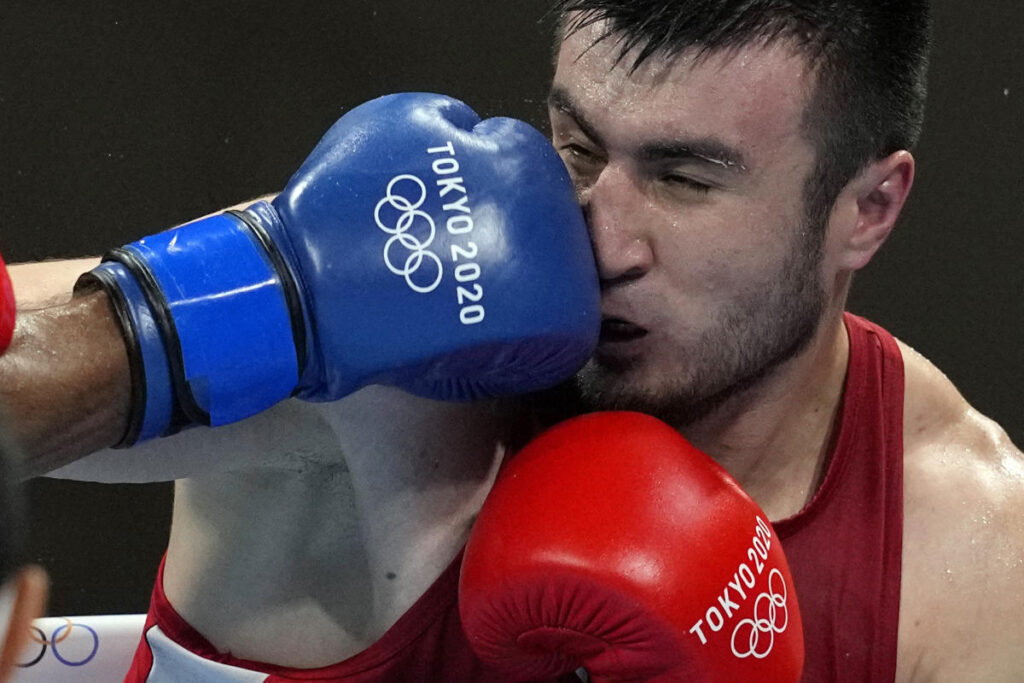Boxing is already out of the Olympics after an epic battle between the ousted governing body and the IOC. Boxing has been an Olympic staple for more than a century, but if major organizational changes aren't made by next year, it could be dropped before the Los Angeles Games.
As the action continues this month in Paris, this Olympic Games will be unlike anything fans have seen in decades – some good, some bad.
Twelve years after women's boxing made its Olympic debut in London with 36 athletes across three weight classes, the sport appears to have achieved gender parity, fulfilling a goal of the Olympic movement as a whole. Barring last-minute additions and dropouts, half of the 248 boxers in Paris will be women competing across six weight classes.
But the milestone was achieved with a drastic reduction in the number of men's boxers across the entire Olympic boxing competition, to the lowest since 1956. While Paris will have 23 more women than Tokyo three years ago, there will be a staggering 63 fewer men, and just seven weight classes, the fewest since 1908.
In fact, the number of boxers in Paris is several dozen fewer than in any other Olympics of the 21st century. The 248 boxers in Paris is a fraction of the 432 boxers recorded at the 1988 Seoul Games and significantly fewer than the 289 boxers in Tokyo.
USA Boxing coach Billy Walsh, a strong supporter of women's boxing since coaching Irish boxer Katie Taylor to gold in London, said the addition of three weight classes to women's boxing in Paris was “fantastic.”
Walsh acknowledges there are drawbacks to growing the sport, given the IOC's typically strict cap on total Olympic participation, and it's rare for it to add more athletes to traditional Olympic sports, especially as the IOC adds trendy new sports to each Games.
“It's sad in a way for the men,” said Walsh, who represented Ireland at the Seoul Olympics in 1988. “When I was boxing there were 12 men's weight classes. That went down to 10, then eight and now it's down to seven.”
Eight years ago in Rio de Janeiro, 250 men were given the career-defining honor of being an Olympic boxer. Just eight years later, that number has been cut in half to 124 athletes, three weight classes fewer than in Rio.
The number of weight classes in men's boxing in Paris will be the fewest since the 1908 London Games, when just five weight classes were competed for the second time in the modern Olympics. Three years earlier, at the Tokyo Games, the number of weight classes in men's boxing had been reduced to eight for the first time since 1948.
That means the Olympic weight divisions between 71 kilograms (156 pounds) and 80 kilograms (176 pounds) no longer exist: professional middleweights compete at 160 pounds and super middleweights at 168 pounds, but fighters who couldn't make it down or up to the Olympic limit were out of luck.
This is a concern for Walsh and many in the sport: The elimination of weight classes will encourage fighters to push their bodies to their limits to see if they can fit into a less-than-ideal weight class in order to qualify, which could lead to discrepancies both above and below weight.
“The gap between the weight classes has widened as a result of the narrowing down,” Walsh said. “There's a big gap now. There's a reason the weight classes exist – it's for punch power. You can hurt them. You can do damage. The guy who barely makes it into welterweight has to put on 25 pounds, and they're putting on 10 or 12 pounds. They're punching really hard. It's a mixed martial art, and people are going to get hurt. That's what I'm worried about.”
The overall reduction in athletes will mean smaller team sizes for many countries, reducing the sport's traditional powerhouses' chances of winning gold medals.
The United States, the all-time Olympic medalist and gold medal winner, sent eight athletes to Paris under a rigorous new qualifying system managed by an IOC special commission that oversees the games. The U.S. team has fewer athletes than Australia, Brazil, Ireland and modern amateur boxing powers Uzbekistan and Kazakhstan, all of which had much easier paths to Paris under the new system.
Cuba, second only to the United States in Olympic achievement, is likely to field just five athletes in Paris after two of its men failed to qualify in the final qualifying round — the country will have no female athletes for a fourth straight Olympics, despite belatedly lifting a national ban on women's sports in late 2022.
But Cuba's small contingent also includes two-time gold medalists Arlen Lopez and Julio Cesar La Cruz, who are seeking to become boxing's only three-time Olympic champions, joining Hungary's Laszlo Papp and fellow Cubans Teofilo Stevenson and Felix Savon.
A smaller field will mean a different kind of competition in Paris — fewer matches and more prize money — and it will be exciting, especially as newcomers make it into the medal rounds at the famed Roland Garros tennis complex.
Many athletes, including the heavyweight and super-heavyweight classes, only need to win two bouts to win an Olympic medal: there are only 16 athletes in each weight class, and no weight class will have more than 22 athletes in Paris.
The tournament will not take place during the Olympics, and for the first time in decades boxing will finish one day before the closing ceremony.
“It's definitely going to be different,” Walsh said, “but it's going to be exciting.”
___
AP Summer Olympics: https://apnews.com/hub/2024-paris-olympic-games

